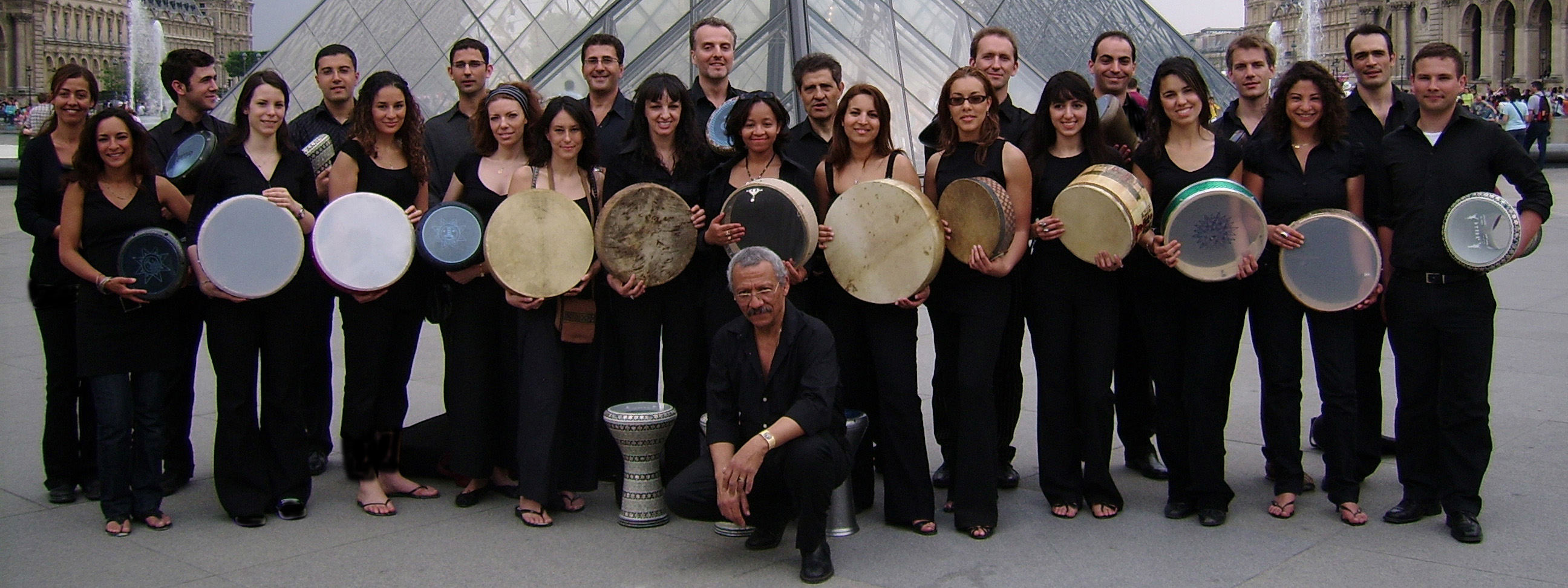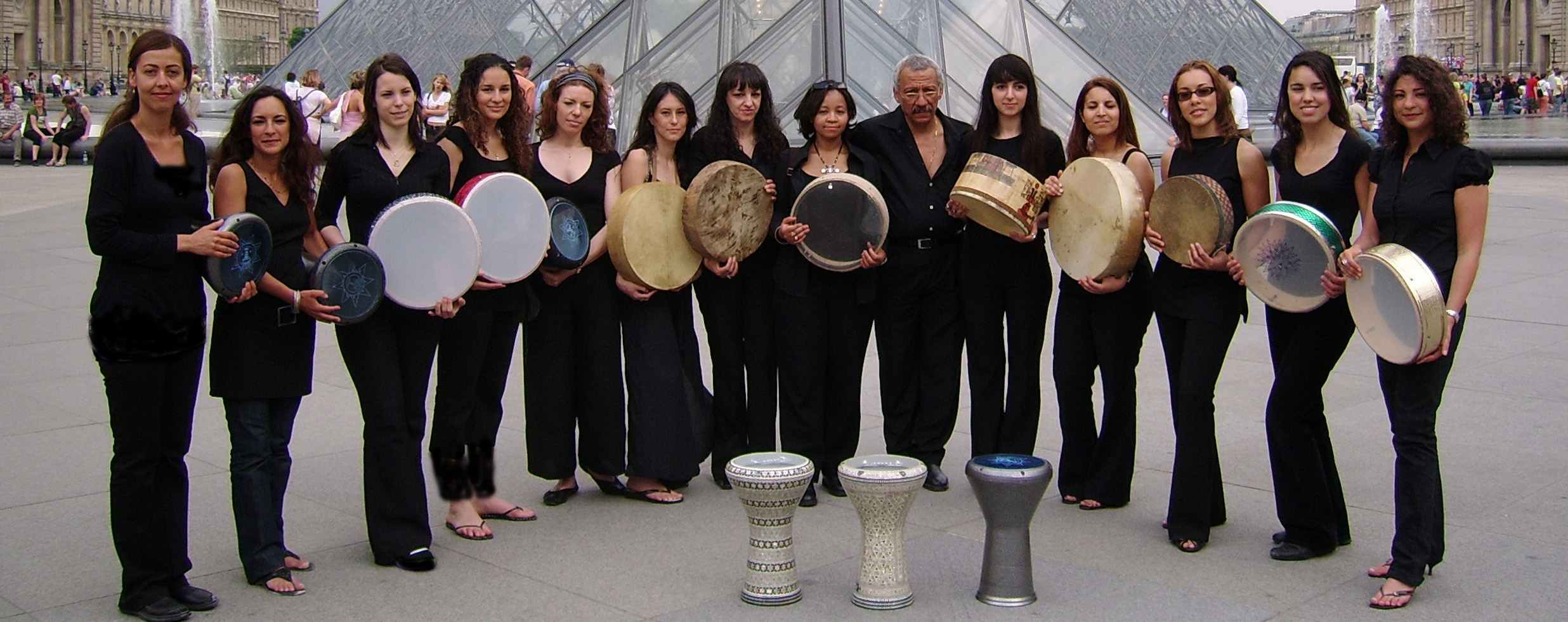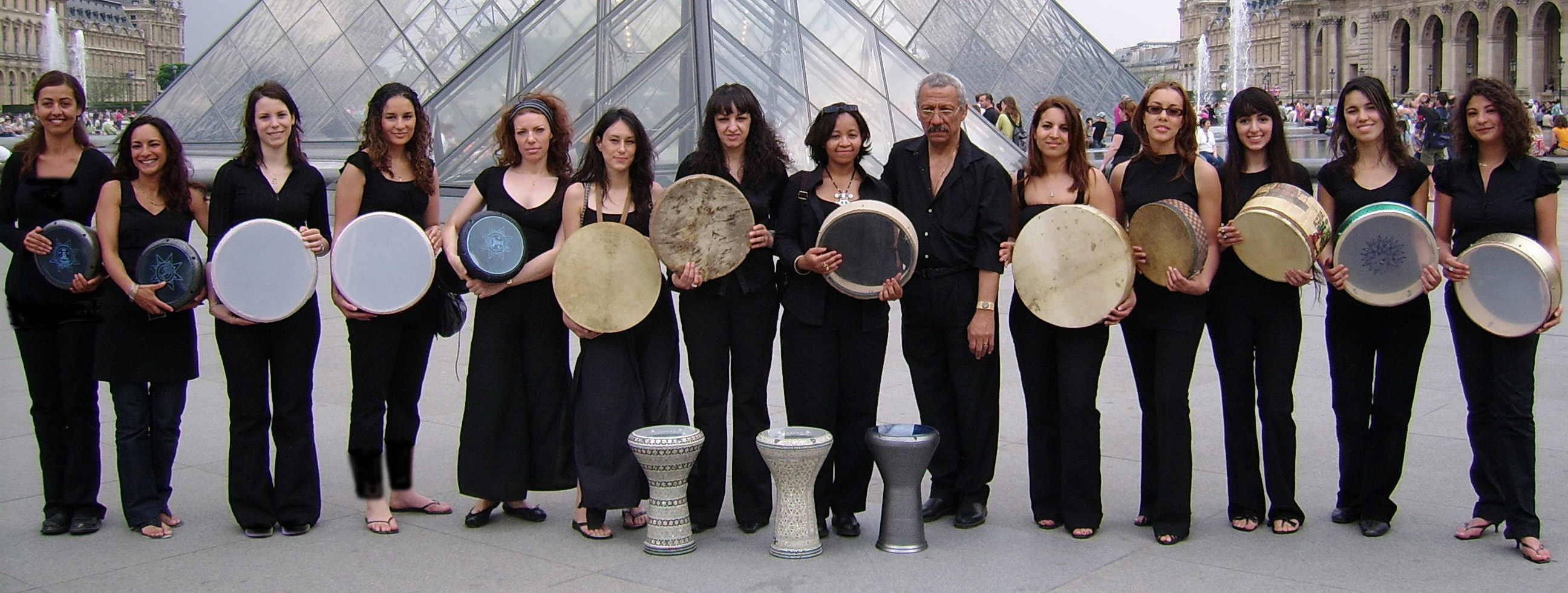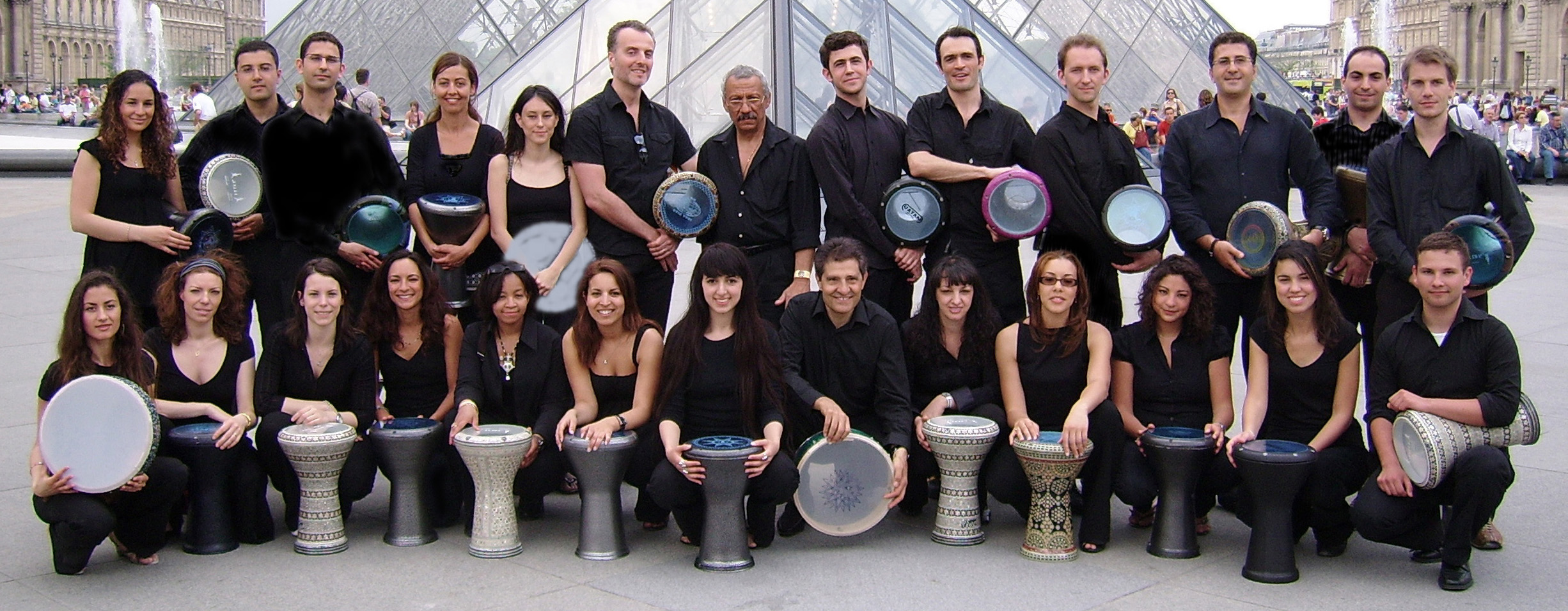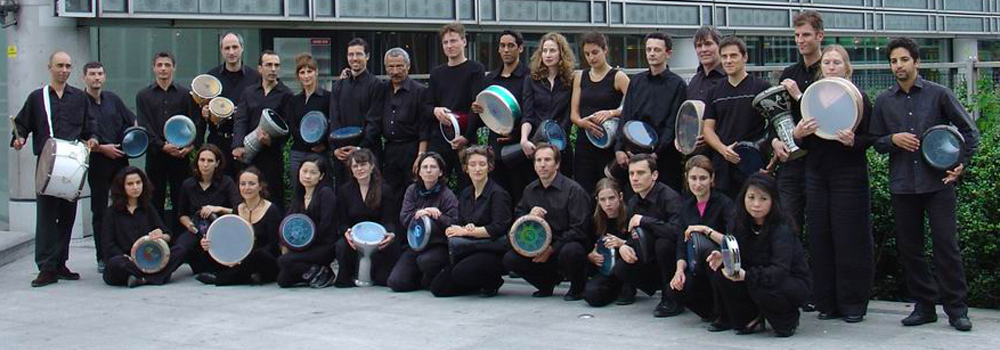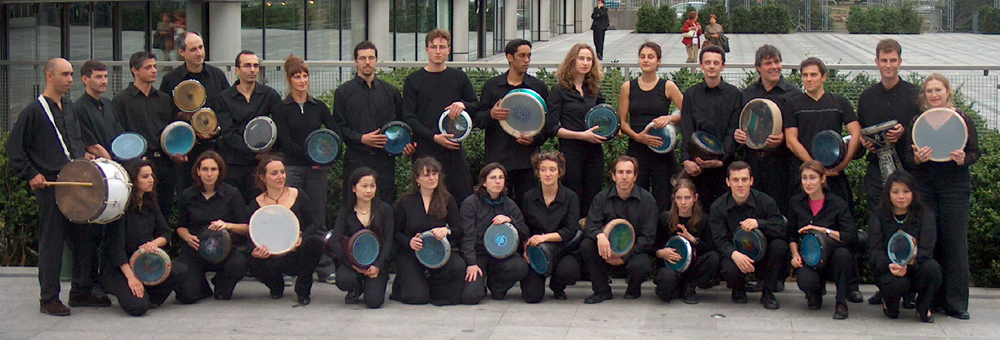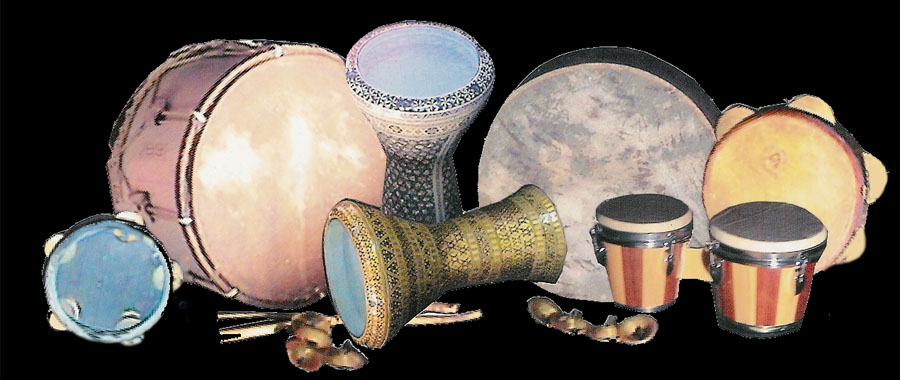COURSES, WORKSHOPS and SHOWS of ORIENTAL PERCUSSIONS
Courses of Darbouka (Derbouka), of Sagattes, of Req, of Bendir, of Bongo and of Tabl Baladi

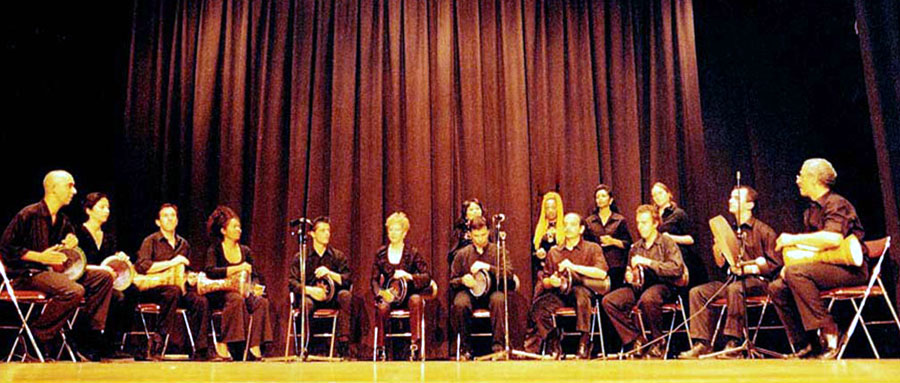
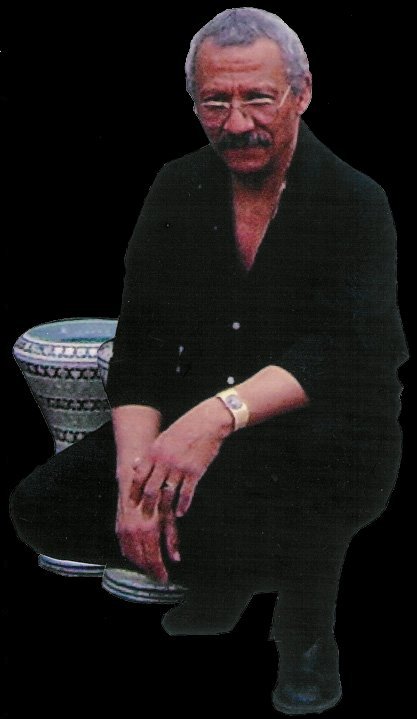
IMPASSIONED BY THE RYTHM
The rythm attracts us with a magic force! Present around us, it is also part of us and at the same time, it let us understand it, control it, play it!
In the hands of Hassan, the rythms of Maghreb or the Eastern rythms live by multiple combinations of strike, slappings, keys and defined bearings, either as the low sounds (Doum) or like the acute sounds (Tak) and it breathes by the moments of silence. Awaked by an artist who improvises as soon as he follows orders of composition, the rythm vibrates on the percussion instruments like the req (tambourine), the bendir (dèfe or mazhar), the sagattes (cymbalettes of the fingers), the bongo, the tabl el beladi (el tabl el saïdi), and on the tabla (darbouka). The rythm is the heart of the Eastern orchestra (or Westerner), the rythm is the language of each people.
With all the rythmic instruments of the world, we travel from one country to the other.
Hassan Abdel Khalek, musician impassioned with the teaching experiment and the love of the rythm, make us enter in the world of the Eastern and Maghrebi rythms, this whole of sounds and silences of various durations, put in a certain order
Hassan has been practicing this art with a lot of engagement and heat since 1997 in his school: the Center of Eastern percussions. Hassan, born in Egypt, was formed in the school of percussions of the Egyptian Folk National Group `' El Ferka El Kaomeya' ' from1968 to 1975. With this experiment starts a long artistic way, marked out by the work of the percussionnist in the orchestras, with the most famous interpreters of the Eastern music like Warda, Hanni Chaker, Sabah, and the most known dancers like Tahia Carioca (Operetta - kahwet el all), Nagwa Fuad, Nahed Sabri, Fifi Abdou, Azza Cherif, Chouchou Amin.
Hassan Abdel Khalek played as Eastern musician percussionnist in the orchestra of famous artists, singers or dancers in spectacles in the best hotels of Cairo (Meridian, Sheraton, Hilton).
He took part in many world tours with famous soloists and legendary groups, and in 1978, he started to play in the cabarets of London and Frankfurt, in the Hilton Night club of Tokyo, and since 1980 in the Parisian cabarets: El Djazaïr, El Badiya, El Raousha, Palm plantation, Salammbô, Chalimar, El Dizlare, and the Sahara cabaret where he enchanted a public from the whole world with the rythms and the Eastern music. Always active, Hassan played in various concerts, spectacles (concerts of the Dunois Theatre in Paris in December 1992, in the Contemporary Theatre of the Dance in Paris in October 1993, at the Institute of the Arab World in Paris in November 1995) and in many festivals (the festival of Nantes, Almées of Cairo in October 1994, the festival of Avignon in July 1998).
Articles devoted to Hassan have been published in the press: Nova Magazine in November 1997, in the magazine Paris Mômes from April 27 to August 31 in 1998, in Télérama March 1989 following to series diffused on Radio France Culture reporting the life of the famous Egyptian writer Nagib Mahfouz, the Dead end of the miracles.
With his Eastern orchestra composed of 12 musicians, he collaborated to spectacles of Eastern songs and dance with the groups: Turquoise, Arabesque, Ocréambe.
With his group of Eastern percussion, he created and took part in spectacles of percussions.
He went on tour in Italy in 1992, in Tunisia in 1994, in the United States in 1996, in Norway in 1997.
He appeared in the movie Le Thé à la Menthe in 1983 and in the TV series Highlander III in 1995.
He took part in television broadcasts: Combien ça coûte (TF1 in June 1993), Une pêche d'enfer (France 2 in September 1994), Le Cercle de Minuit (France 2 in November 1994), Musique au Coeur (France 2 in November 1994 and December 1995). And Finally in June 2004, he gave a darbouka lesson on live in the very popular show of M6 Les Colocataires.In April 2007, he recorded rhythmic sequences for the film Whatever Lola Wants (Pathé Films), directed by Nabil Ayouch and released on April 16, 2008. Today, his time is dedicated to passing on his knowledge through the production of a DVD and CD of rhythms in collaboration with the instructor Nadia Messaï. This work aims to pedagogically explain the bases of rhythms as illustrated by choreographed oriental dance sequences. Oriental dance (in Arabic Raqs Sharqi) comes to us from Egypt. An ancestral dance, historically passed down by oral transmission, it is today taught as a form in its own right and is accessible to all who wish to discover its richness. More than a simple dance, oriental dance represents a veritable form of therapy for those who practice it. This box set was created to allow you to establish the correlations that exist between dance and rhythms. In all forms of dance, and in particular oriental, we must expose the rhythms through movement. In the DVD, you will find: a presentation of the box set, a warm-up, the base technique, and 14 sequences (each sequence will include a study of the individual techniques and their combination). In the CD, you will find the rhythms used throughout the DVD, providing you with the opportunity to practice the sequences presented.
The CD-DVD box set Dance and Rhythms Deconstructed is on sale Price 40 Euros at:
• Boutique Charihane - 01 53 40 75 10
• Boutique Chame Music – 01 42 81 17 67
• Nadia Mesaï – 06 71 03 62 06
• Hassan Abdel Khalek – 06 08 99 01 06
• Fnac, Virgin, and other major distributors. After years of work as a player, he now transmits his knowledge and his experiment to his pupils. Its teaching is based on a simple and well structured method in which he integrates a rythmic writing by keeping a balance between notation and exercises of memory. Hassan connects innumerable rythmic variations the ones with the others.He breaks up the known rythms - always with the intention to develop intuition and artistic taste of his pupils. His great knowledge of the rythms of the various geographical areas transports us in the space of the Eastern culture. `' We travel with the rythm from one border to the other ` ' - says Hassan who always try to pass beyond his own limits. Playing the Eastern traditional rythms make them live and permit to transmit them from generations to generations and to perpetuate the tradition, like a trip in the Time. The learning is an infinite dynamics nourished by the enthusiasm of those who wish to learn. Thanks to all.
PRESENTATION
THE STUDENTS FROM PERCUSSIONS-ORIENTALES SCHOOL
